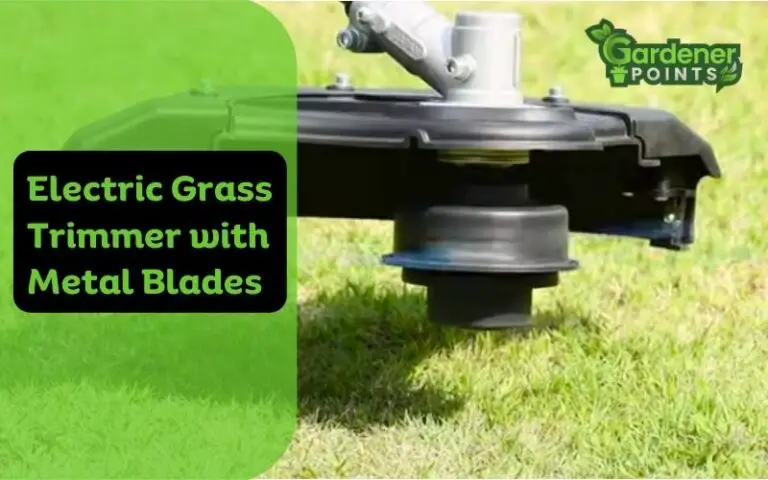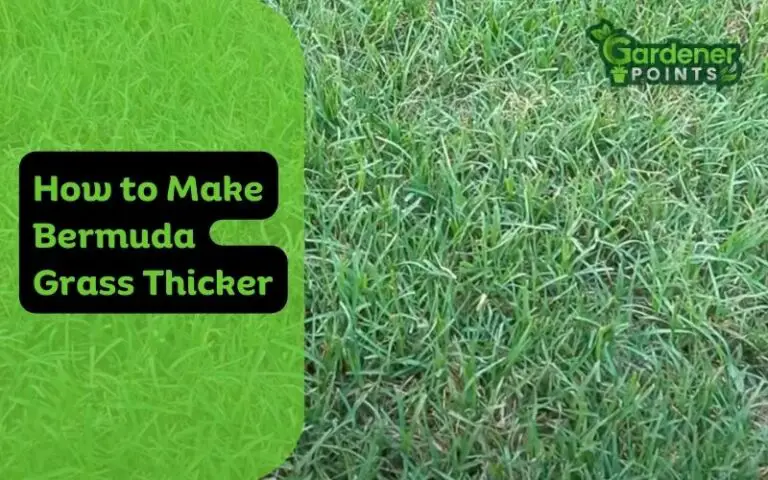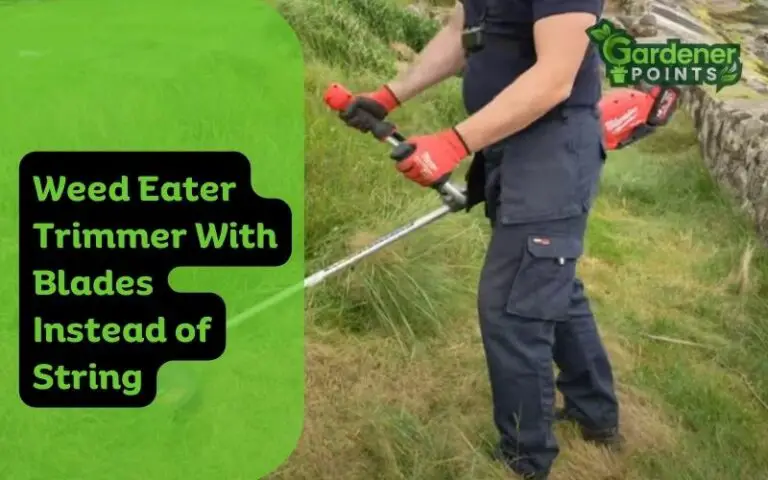How To Get Rid of Forsythia – Will Vinegar Kill It?
Forsythia is a fast growing bush which can negatively affect your garden. These bushes can be a hindrance to the other plants and the quality of the soil itself. Removing the bush of Forsythia manually can be a huge hassle.
A very simple and reasonable way to kill Forsythia is to use vinegar or salt. Combining these two components together might be detrimental to the rest of your plants. So, use either only vinegar or only salt to get rid of unwanted Forsythia from your garden.
So if you want to get rid of forsythia, keep reading! We will have a detailed discussion.
What Is Forsythia Bush – Do They Have Deep Roots?
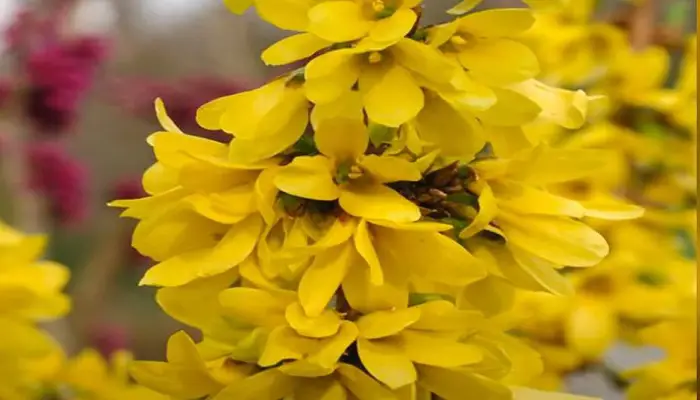
Forsythia bush is a kind of plant which is usually unwanted in a well curated garden. These bushes or plants can be used as medicines so they do have some benefits.
It is famously used for treatment of cold or fever locally. So, a lot of people like to grow Forsythia in their garden for their benefits.
Forsythia grows the most in early spring. Usually, you can tell spring is fast approaching by noticing the flowers in these bushes. The flowers in these plants are bright and similar to cherry blossoms in some aspects. Despite the visuals and benefits, most people want to get rid of this plant.
Once planted, they don’t require much maintenance or attention to grow very fast. If you cut a branch of Forsythia and plant it, a new plant will take place.
The new roots will grow within a few weeks and go very deep. Since Forsythia has very deep roots, if you want to eradicate them, you have to get rid of them from the roots.
How Deep Are Forsythia Roots?
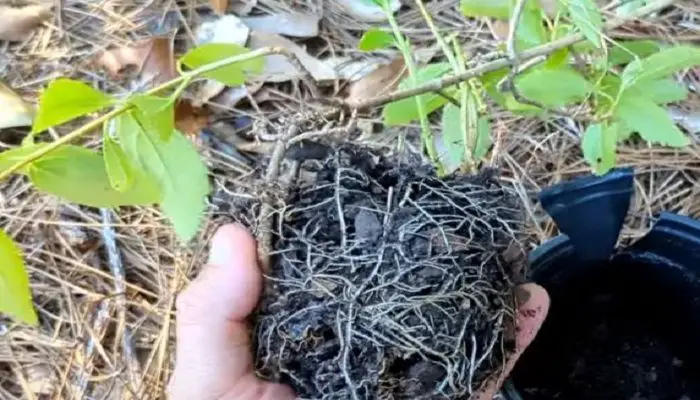
The main root of the Forsythia is a dense taproot. By nature, these plants are extremely deep rooted. They can go about 2 feet, or 10-15 inches, deep in the ground and spread out from the main root.
These deepest roots can reach well below the soil surface and suck in moisture from the soil. As a result, the rest of the plants in the garden might be suffering from dehydration due to the invading nature of this bush.
Will Vinegar Kill Forsythia?
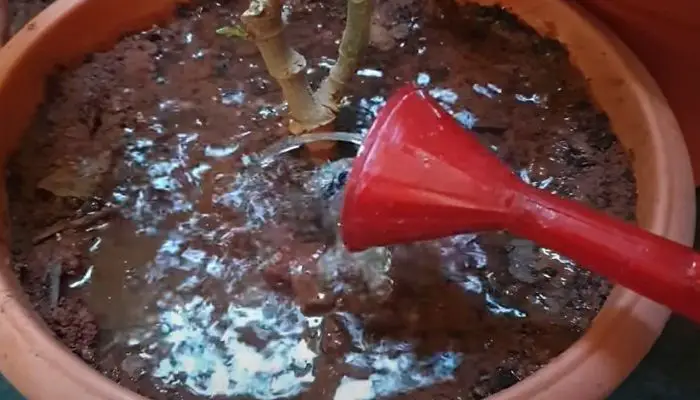
Vinegar effectively kills Forsythia the fastest way possible. Vinegar consists of 95% water and 5% acetic acid. This acetic acid works as an effective herbicide for Forsythia.
The vinegar sucks out the moisture from the plants and kills them with this acid. For best effects, you can use heated vinegar for the application.
How to Kill Forsythia? 3 Methods To Use
In order to completely kill Forsythia, you need to make sure that the roots are all eradicated. If there are any roots left under the ground, they will create new branches and start growing the plant once again. You can use three methods to kill Forsythia- vinegar, salt and herbicide.
Using Vinegar
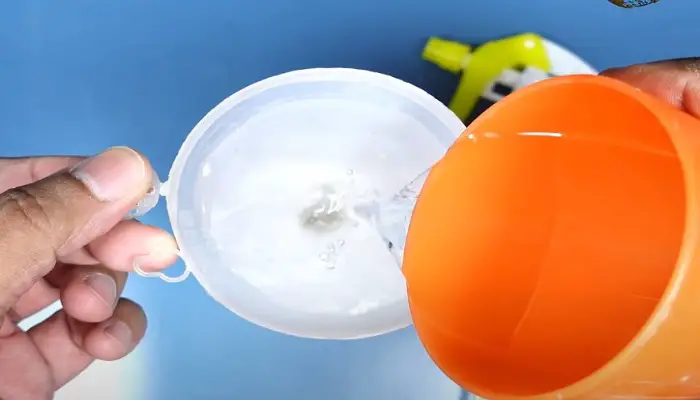
Before using vinegar to eradicate Forsythia, make sure to wear proper protective gear. Horticulture vinegar is not good for humans. So, wear a pair of gloves and a mask to protect yourself. Then follow these instructions to kill Forsythia with vinegar.
Step 1: Cover All The Plants With Plastic
Firstly, cover the other plants and ground around the Forsythia so that the vinegar doesn’t come in contact with them. The vinegar could accidentally kill useful microorganisms or plants.
Step 2: Choose A Container For Vinegar
Choose a watering can or bucket to pour the vinegar into. Keep in mind that you won’t be able to use the same container again. Don’t keep the vinegar in a spray bottle as it might contaminate other plants easily.
Step 3: Pour The Vinegar On The Bushes
Pour down the vinegar on top of the Forsythia you want to kill carefully. Do it slowly to make sure you don’t get any of it on your clothes or body.
Step 4: Check Up On The Forsythia
Cover the bush area and wait for a few days to check the bush. The vinegar should have killed the bush successfully by now. You’ll find brownish black leaves of the Forsythia.
Using Salt
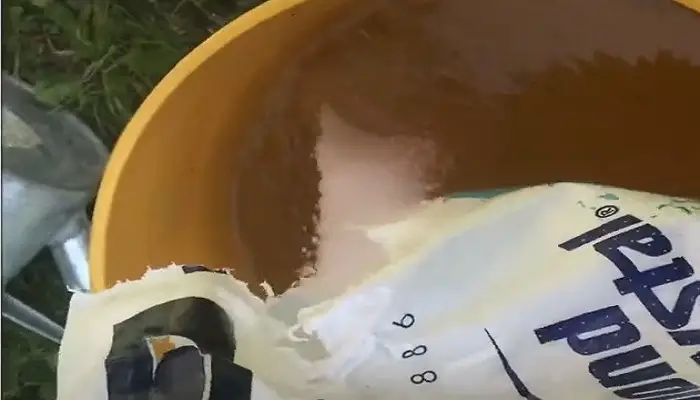
Salt is a great desiccant. If you treat the soil with salt, it won’t allow any plants to grow in that area at all.
Salt kills and prevents all kinds of vegetation including Forsythia. It also stays in the soil for a long time, acting as a desiccant.
Follow these steps to eradicate Forsythia using salt:
Step 1: Make A Hole
Dig a hole around the Forsythia and the area it has roots in.
Step 2: Put The Salt In The Hole
Sprinkle salt into the hole as much as you want. If the Forsythia is only a small bush, a few pinches of salt should be enough. On the other hand, for a large bush of Forsythia, sprinkle more salt into the hole.
Step 3: Cover The Hole
Cover the hole with soil and wait for about a week to check up on the plant.
Step 4: Check and Repeat Process
If after a week, the Forsythia doesn’t turn brown and die, dig another hole and repeat the process again. This method might take a few tries to succeed, unlike using vinegar.
Using Herbicide
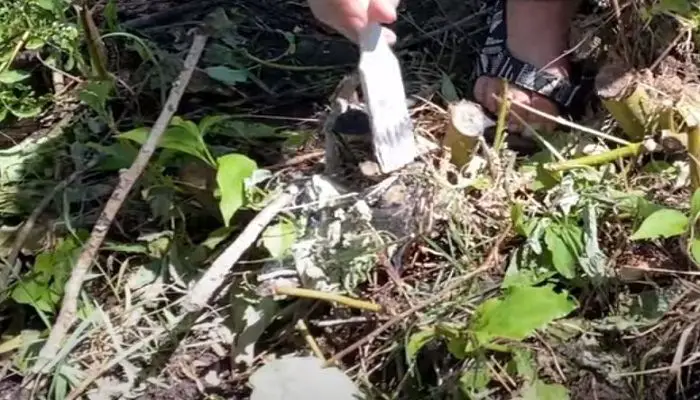
Normal herbicides are not usually cut out for killing Forsythia. These herbicides usually can’t eradicate them from the roots, as they’re too deep for the herbicide to reach.
However, these can work great to get rid of the Forsythia for the time being. You’ll need to reapply them multiple times to terminate the growth and stop the spreading.
Here’s how to apply the herbicide to your bushes:
Step 1: Fill Up The Herbicide Bottle
Fill up a spray bottle with the chosen herbicide. Make sure to purchase one with high concentrations of glyphosate.
Step 2: Spray The Herbicide
Spray the herbicide very carefully on just the Forsythia branches. The branches will dry up and wilt after a few weeks of waiting.
Step 3: Prune The Bushes
Use a pruning shears to cut off the branches from all around the bush. Regularly pruning the branches keeps the Forsythia from spreading too much.
Step 4: Remove The Roots
Dig a hole with about 12-15 inches of depth around the root of the Forsythia. Get the roots out from the ground and keep them turned over to kill them fully. You can also use the shears to cut off the roots from the ground.
The pruning is best done before mid-July. At that time, the flowers stop blooming on the Forsythia. Regularly prune the branches so that they don’t spread out all over the garden.
How Fast Does Forsythia Grow?
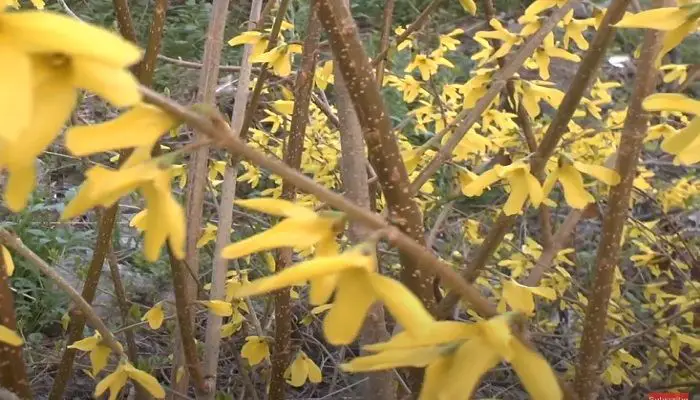
Forsythia is known as one of the fastest growing shrubs to exist. They can grow up to 24 inches throughout the year.
The peak time for the growth of Forsythia is in late fall or early spring. Planting them at this time will lead to even faster growth for these shrubs.
How do you stop Forsythia from spreading?
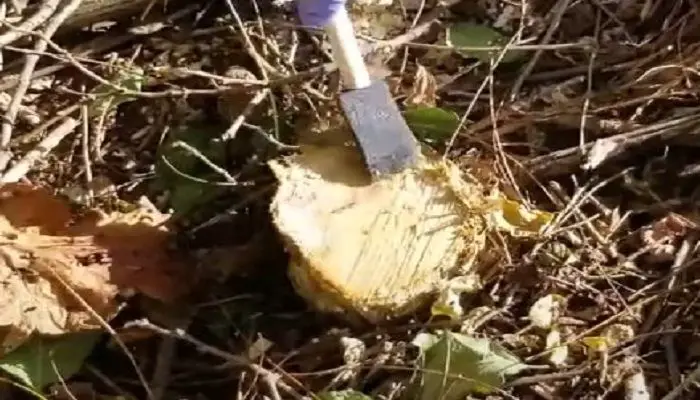
No matter how appealing or pleasant this plant may be, there may be a need to stop it from spreading all over the farmland or garden. If you don’t prune it regularly, it may send out suckers and spread over your farmland or garden.
Forsythia pruning must be done at the right time if you want the flowers to blossom. The best time to prune it is shortly after the plant finish flowering. If you want the plant to develop flower buds and have new growth, you must complete the pruning before mid-July.
Proper pruning will require the best tools. One of the tools needed for proper pruning is Hand Pruners (pruning shears).
Because pruning shears work like scissors, they can be used to cut small branches. Although shearing is faster and easier than hand pruning, hand pruning is much better for forsythia plants.
Read Also: Does Cypress Mulch Keep Bugs Away?
Will Roundup Kill Forsythia?
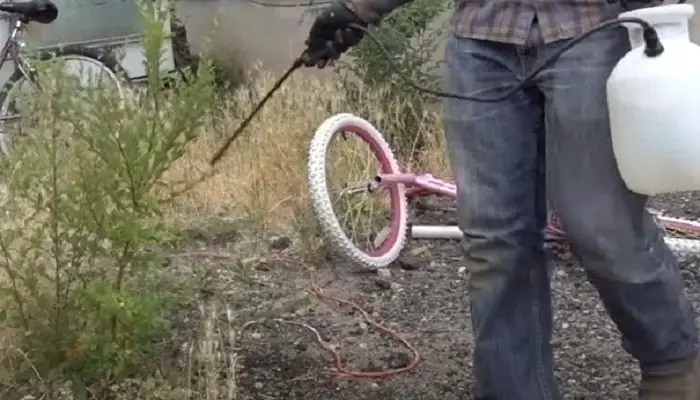
Roundup can kill small amounts of forsythia, but it can’t completely eradicate a big bush of them.
Roundup is a very effective herbicide containing glyphosate in liquid form. This herbicide is used for controlling weeds and unwanted plants in agriculture.
Since Forsythia is a very deep rooted plant, spraying Roundup on them once or twice might not be enough to kill them.
However, continuous repeated application of Roundup can eventually end up killing the Forsythia. But if it doesn’t destroy the roots, then the Forsythia will come back full force once again.
Will Bleach kill Forsythia?
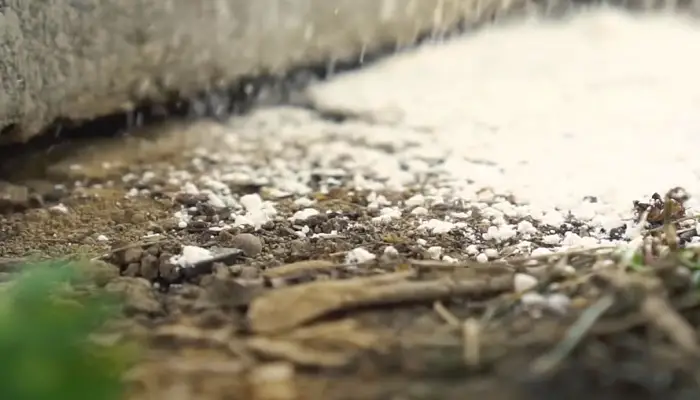
Since bleach is primarily used for sterilization purposes, it can kill organic matter, including those fungi and bacteria needed for plant growth. So, therefore, bleach will kill forsythia plants if it finds its way to the root or base.

Say hello to Afrabby – your go-to research expert turned gardening expert, lawn care aficionado, and a skilled lawn mower mechanic! With years of hands-on experience and a passion for cultivating lush green landscapes, Afrabby is your partner in achieving the lawn of your dreams.
Whether you’re seeking expert advice on plant selection, weed control, or optimal mowing techniques, Afrabby’s got you covered. Equipped with the knowledge to diagnose and fix mower troubles, your lawn equipment is in safe hands. Let Afrabby transform your outdoor space into a stunning oasis you’ll love to show off!

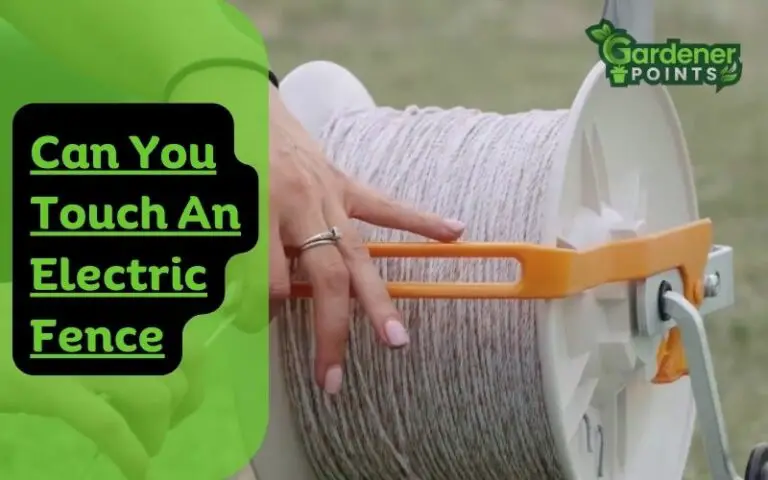
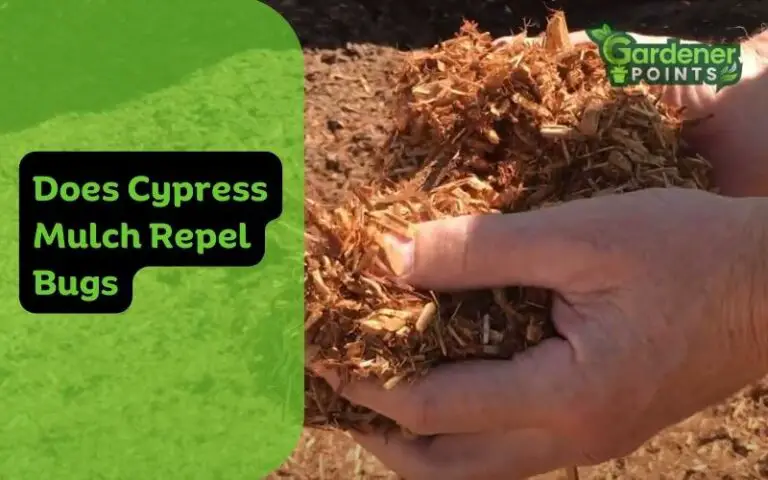
![Best Electric Brush Cutters: [Top 5 Options to Grab in 2023]](https://gardenerpoints.com/wp-content/uploads/2023/08/Best-Electric-Brush-Cutters-768x480.jpg)
